How Open World Games Have Revolutionized Storytelling
6 March 2025
Do you remember the first time you stepped into a virtual world and felt truly free? That moment when you realized you could go anywhere, do anything, and carve out your own story? For many of us, it’s an unforgettable experience. Open-world games have fundamentally changed the way we experience storytelling, turning traditional narratives into immersive, player-driven adventures.
But how exactly did this transformation happen? What makes open-world games such a game-changer (pun intended) for storytelling? Let’s dive into the key ways these expansive digital playgrounds have reshaped the way stories are told in gaming.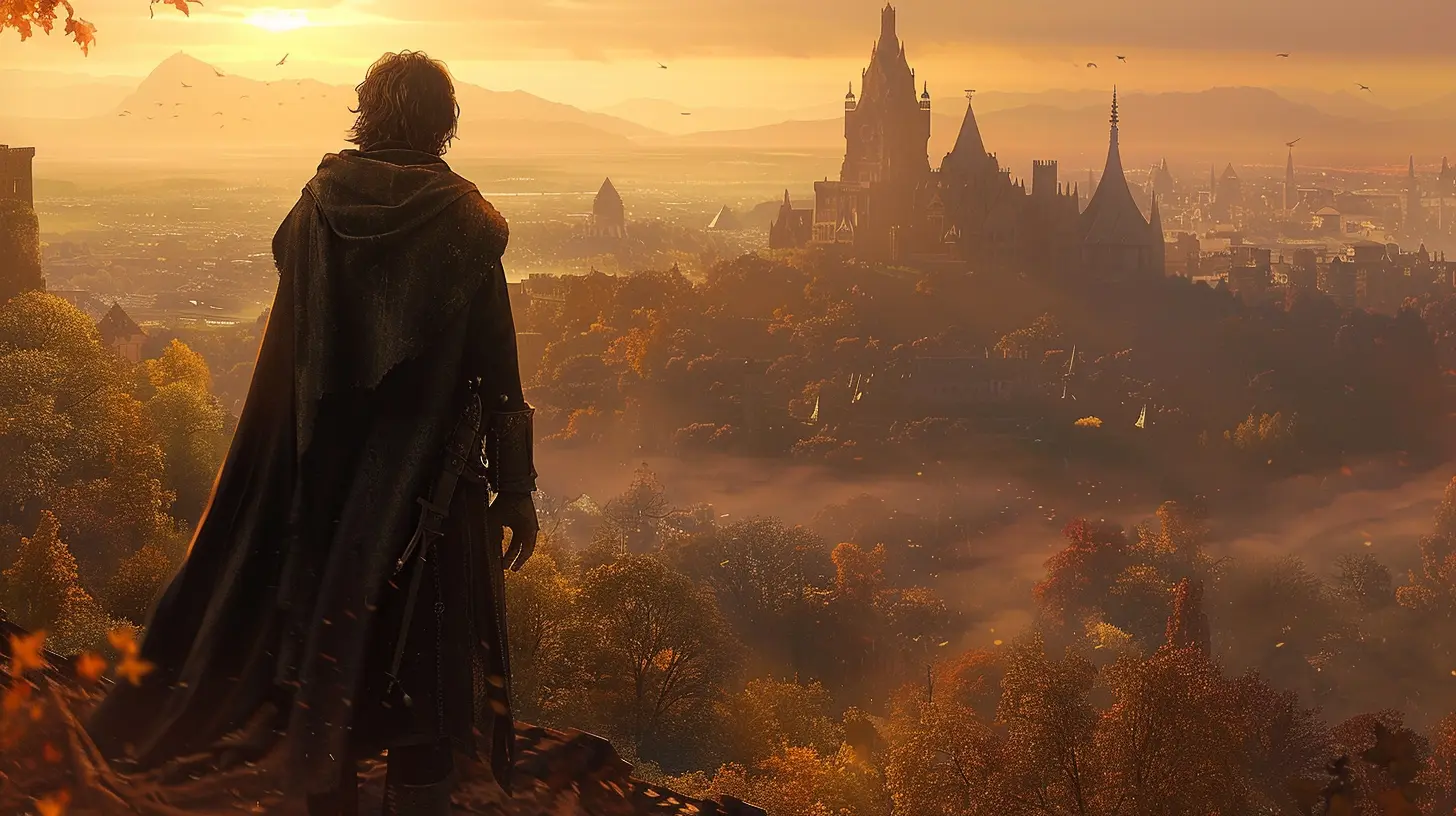
Traditional Storytelling vs. Open World Narratives
Before open-world games were a thing, most video game stories were linear. Think of it like reading a book: you start at the beginning, follow a clear path, and finish at the end. Classic titles like the original “Super Mario Bros.” or “Sonic the Hedgehog” thrived on this structure. And hey, there’s nothing wrong with that! Linear storytelling works. You’re guided through the game’s narrative step by step, and everything unfolds as the developers intended.But here's the thing—linear storytelling doesn’t leave much room for you. Sure, you’re controlling the character, but the story isn’t yours. You’re more of an observer, following someone else’s script.
Then came open-world games, and they flipped the script. Imagine walking into a sandbox the size of a city—or even a country—and being told, “Go ahead, make your mark.” Open-world games don’t just tell you a story; they make you live it. Suddenly, you’re not just the player—you’re the storyteller.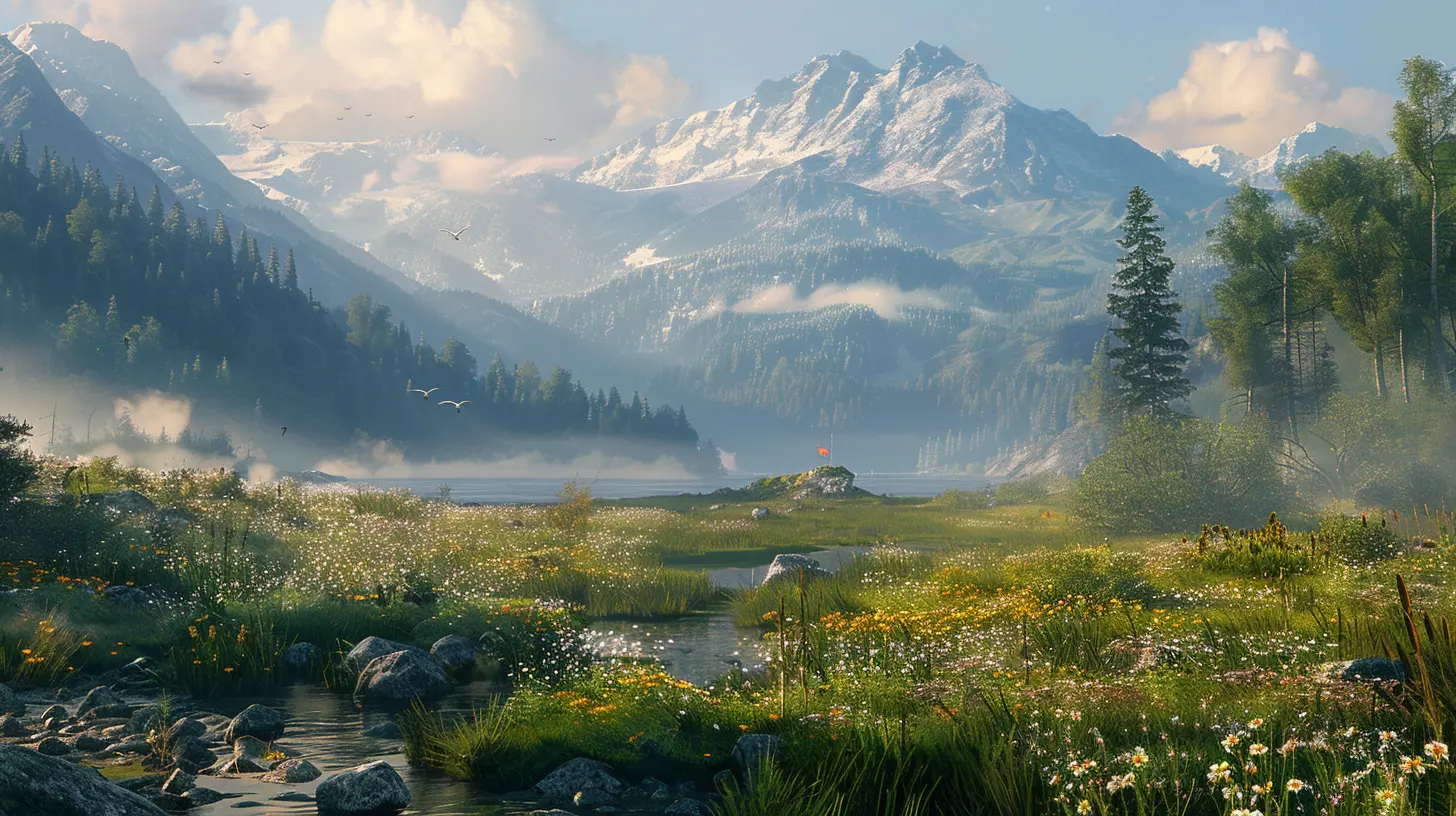
The Player's Role as a Co-Author
One of the most revolutionary aspects of open-world games is how they give players freedom to shape their own narratives. Think of it this way: instead of being handed a novel, you’re handed a blank notebook and asked to fill in the pages yourself.Take The Elder Scrolls V: Skyrim, for example. Sure, there’s a main questline where you save the world from dragons (no big deal, right?). But you could spend hundreds of hours ignoring that entirely. Maybe you decide to become a stealthy thief, joining the Thieves Guild and sneaking through the shadows. Or perhaps you fancy yourself a wise mage studying at the College of Winterhold. Heck, you could become a humble blacksmith and never fight a single dragon at all—the choice is entirely up to you.
This freedom puts players in the driver’s seat, allowing them to co-author the story. And that’s powerful. It’s like being handed a magic pen that writes your life’s story, but with dragons, swords, and epic adventures.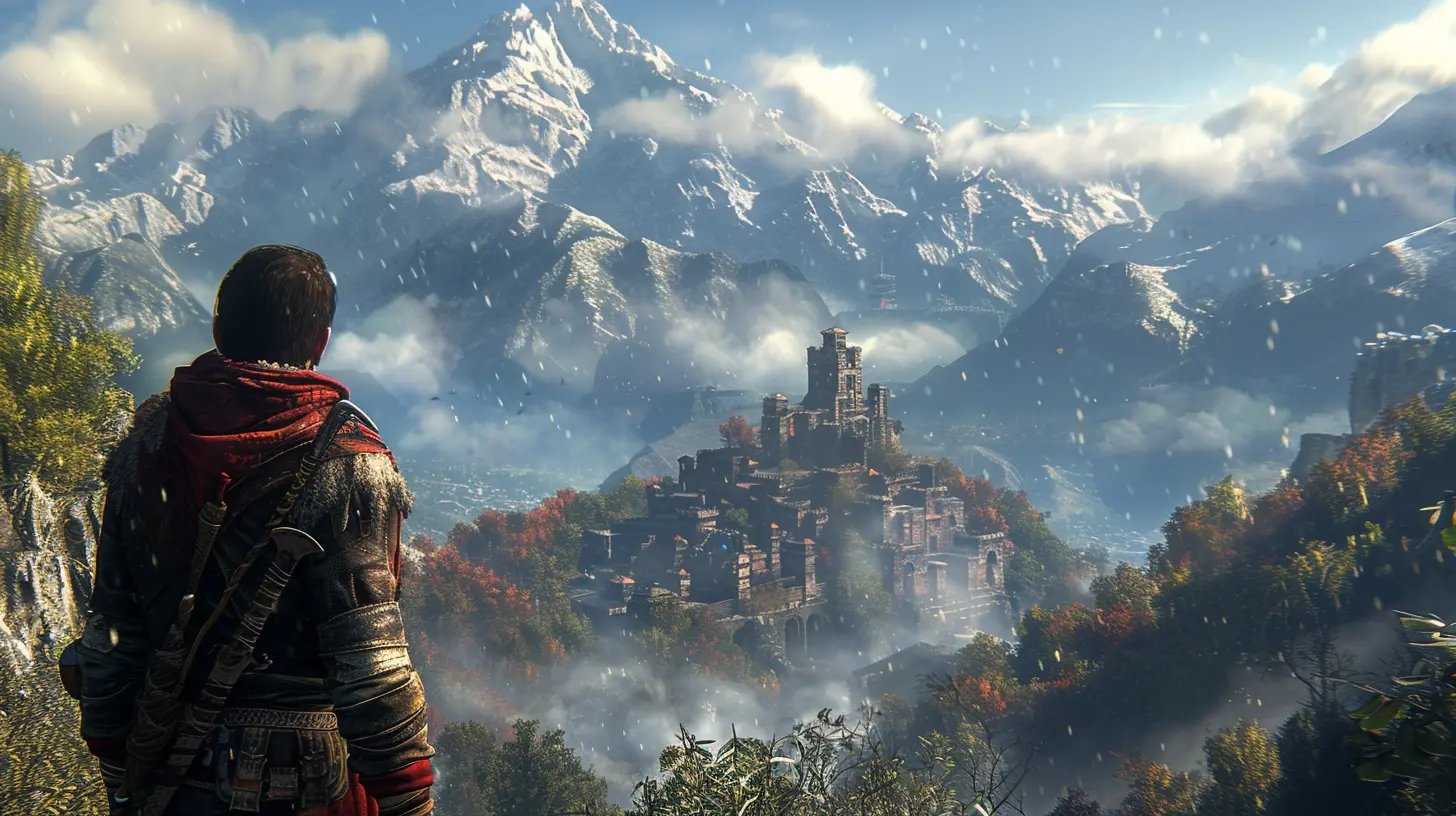
Immersion: Feeling Like You’re Part of the World
Another way open-world games revolutionize storytelling is through immersion. These games don’t just tell you a story—they transport you into it. Massive, detailed environments bring these virtual worlds to life, making you feel like you’re really there.Let’s talk about Red Dead Redemption 2. The game’s world isn’t just a backdrop for the story—it is the story. Every character you meet, every campfire you sit by, every choice you make… it all feels real. The developers didn’t just create a game; they created a living, breathing world. You can almost smell the dusty trails, hear the creak of leather saddles, and feel the weight of every decision you make as Arthur Morgan.
This level of immersion isn’t something you get with traditional storytelling. It’s like the difference between watching a movie and stepping into a VR headset—you feel involved in a way that’s impossible to ignore.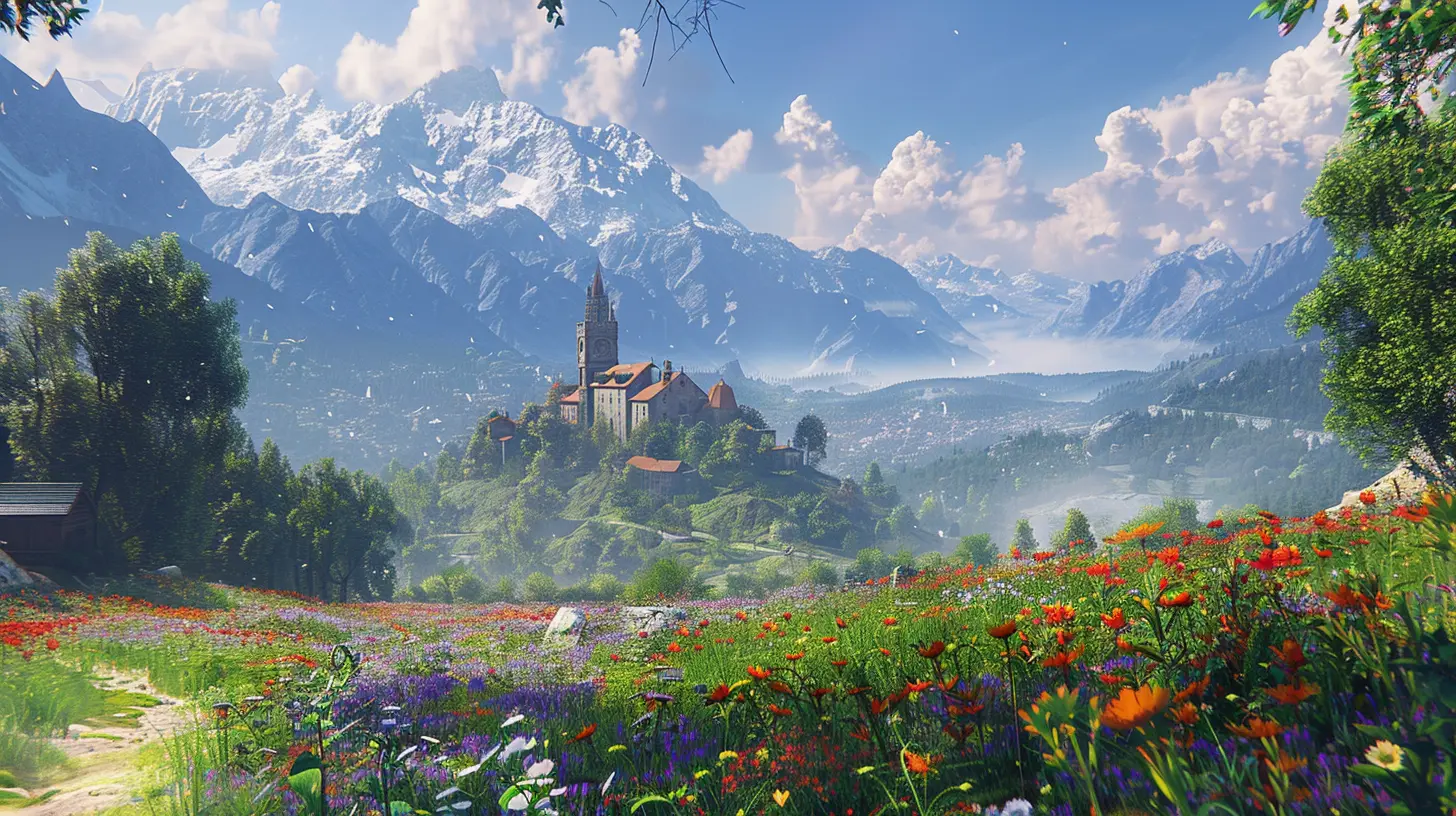
Nonlinear Storytelling: Choose Your Own Adventure
One of the coolest things about open-world games is their nonlinear storytelling. Instead of following a straight line, you’re following a web of choices, each one leading you down a different path.Games like The Witcher 3: Wild Hunt take this concept to the next level. Sure, there’s an overarching narrative—you’re Geralt of Rivia, searching for your adopted daughter, Ciri. But the way you experience that story is up to you. Do you help a village plagued by supernatural creatures? Do you spare or kill a monster who may not be as evil as it seems? Every decision has consequences, shaping not just the story, but the world itself.
It’s storytelling with stakes. Your choices matter, and that changes everything. It’s like being the protagonist in a “choose your own adventure” book, but with way cooler visuals and killer soundtracks.
Environmental Storytelling: The World Speaks for Itself
Sometimes, the best stories in open-world games aren’t told through dialogue or cutscenes—they’re told through the environment. Developers use every detail, from the placement of objects to the design of landscapes, to convey a narrative.Let’s look at Breath of the Wild. The ruined towns and ancient structures scattered across Hyrule tell a story of a once-thriving kingdom brought to its knees by Calamity Ganon. You don’t need a character to spell it out for you—the world itself tells the tale.
Environmental storytelling adds layers of depth, making the world feel authentic and lived-in. It’s like walking into an old, abandoned house and piecing together the story of the people who once lived there. Every crack in the wall and dusty photograph has a tale to tell.
Community-Driven Experiences
Another revolution in storytelling brought by open-world games is how they foster shared experiences. No two players experience an open-world game in exactly the same way, and this diversity of experiences often leads to a vibrant community of players sharing their stories.Take Grand Theft Auto V Online, for instance. Beyond the pre-written missions, players have crafted their own narratives through role-playing servers. Whether you're a law-abiding cop or a mischievous criminal mastermind, the stories you create with other players are unique and often hilarious. It’s storytelling that’s bigger than the game itself—it’s a collaborative effort.
Challenges and Criticism: Is Bigger Always Better?
Of course, it’s worth mentioning that open-world games aren’t without their challenges. Sometimes, creating a massive world can lead to a lack of focus. Some players find themselves overwhelmed with too much to do and not enough direction. Others worry that endless side quests and activities can dilute the main story.That said, when done right, open-world games strike a balance between freedom and direction. The best ones let you wander but still guide you toward meaningful, memorable moments.
The Future of Open World Storytelling
As technology continues to improve, open-world games are only going to get bigger, better, and more immersive. With advancements in AI, we might see worlds that adapt to us in real-time. Imagine NPCs (non-playable characters) that have dynamic conversations based on your actions, or worlds that evolve in response to your decisions. The possibilities are endless—and frankly, it’s pretty exciting.Why Open World Games Matter for Storytelling
So, why does all of this matter? Open-world games are more than just big maps with cool stuff to do. They represent a fundamental shift in how we experience stories. They put the player in control, blur the lines between storytelling and gameplay, and create worlds so rich and immersive that they feel real.In a way, open-world games remind us of the power of choice. They show us that every decision, no matter how small, can shape our journey. And isn’t that kind of like life itself?
So, the next time you boot up your favorite open-world game, take a moment to appreciate just how far we’ve come. You’re not just playing a game—you’re stepping into a story, one that’s uniquely yours to tell.
all images in this post were generated using AI tools
Category:
Open World GamesAuthor:

Leif Coleman
Discussion
rate this article
11 comments
Mika Smith
Great article! Open world games truly take storytelling to a new level. The freedom to explore and engage with characters adds such depth and immersion. I love how they let us shape our own narratives while uncovering rich, intricate plots!
April 8, 2025 at 4:09 AM

Leif Coleman
Thank you! I'm glad you enjoyed it. Open world games really do offer a unique way to engage with storytelling and character development.
Kian Gutierrez
Open world games brilliantly blend exploration and narrative, allowing players to shape their own stories in immersive, dynamic environments.
April 1, 2025 at 2:57 AM

Leif Coleman
Thank you! I completely agree—open world games truly empower players to craft their own narratives within richly detailed worlds, enhancing the storytelling experience.
Zinn McClain
This article insightfully highlights how open world games have transformed storytelling by offering players choice and immersion. The freedom to explore and interact enriches narratives, creating unique experiences that engage players like never before.
March 31, 2025 at 4:37 PM

Leif Coleman
Thank you for your thoughtful comment! I'm glad you found the article highlights the transformative impact of open world games on storytelling and player engagement.
Solaria McDougal
Open world games: where wandering aimlessly is just as epic as the quests. Who needs linear storytelling anyway?
March 30, 2025 at 5:10 PM

Leif Coleman
Absolutely! Open world games allow players to create their own narratives, blending exploration and freedom with storytelling, making every journey feel unique and epic.
Nolan Hudson
Open world games: where storylines roam free but often get lost in the vast wilderness of side quests and collectibles. Sure, it’s a revolution, but sometimes I wonder if I’m playing a game or just lost in an endless fetch quest. Let’s streamline it, shall we?
March 27, 2025 at 5:22 AM

Leif Coleman
I understand your concern! While open world games offer immersive experiences, balancing story and exploration is crucial. Streamlining can enhance narrative focus without sacrificing the freedom that makes these games special.
Zarek Rogers
Absolutely loved this article! Open world games have truly transformed storytelling, allowing players to immerse themselves in rich narratives while exploring vast landscapes. It’s amazing how player choices can shape their unique adventures. Can’t wait for more groundbreaking titles!
March 26, 2025 at 3:56 AM

Leif Coleman
Thank you! I'm glad you enjoyed the article. Open world games truly offer a unique way to experience storytelling, and it's exciting to see how player choices enhance the narrative. Stay tuned for more!
Katherine Cross
What an exciting exploration of open world games! 🌍✨ The way they blend immersive storytelling with player freedom truly transforms our gaming experiences. I can't wait to dive into more adventures where I shape the narrative! Keep up the great work! 🎮
March 25, 2025 at 4:24 PM

Leif Coleman
Thank you! I'm glad you enjoyed the article. Open world games truly do offer a unique blend of freedom and storytelling that enhances the gaming experience! 🌟
Marlowe McQuiston
Open world games have transformed storytelling by allowing player agency, fostering immersive narratives, and integrating dynamic environments that respond to choices, enhancing engagement and depth.
March 21, 2025 at 4:40 AM

Leif Coleman
Thank you for your insight! Indeed, player agency and dynamic environments are key to creating rich, immersive narratives that elevate the storytelling experience in open world games.
Sarina Barlow
While open world games enhance storytelling through player agency and exploration, they often risk narrative coherence, leading to fragmented experiences that can dilute emotional engagement and thematic depth.
March 18, 2025 at 5:04 AM

Leif Coleman
You raise a valid point. While open-world games offer unique player freedom and exploration, striking a balance between agency and narrative coherence is crucial for maintaining emotional depth and thematic impact.
Jude McInnes
Open world games didn’t just change the game; they flipped the entire narrative script! Who needs linear plots when you can craft your own epic saga? It’s like being handed the keys to the kingdom—so buckle up and prepare for storytelling freedom like never before!
March 9, 2025 at 4:20 AM

Leif Coleman
Absolutely! Open world games empower players to shape their narratives, offering unparalleled freedom and immersion in storytelling. It's a game-changer!
Zayne Lawson
Open world games have redefined storytelling by immersing players in dynamic narratives where choices shape outcomes, fostering deeper emotional connections and enhancing player agency, ultimately creating a more engaging gaming experience.
March 7, 2025 at 5:33 PM

Leif Coleman
Thank you! I completely agree—open world games have indeed transformed storytelling by allowing players to directly influence narratives, making the experience more immersive and personal.
MORE POSTS
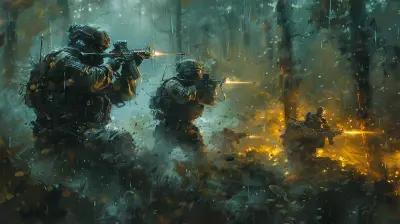
Exploring the Rise of Futuristic War in Video Games

Portable Powerhouses: Testing Compact Gaming PCs

A Guide to the Best Gaming Glasses for Eye Comfort

Achieving Success in Political Simulation Games: Navigating Complex Landscapes
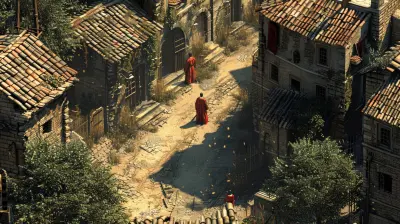
Great Adventure Games Set in Historical Eras

AI Commanders: Friend or Foe in The Latest War Games?
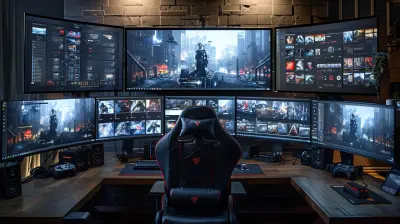
Creative Problem-Solving in Cooperative Games: Thinking Outside the Box

Best VR Accessories to Improve Immersion in Virtual Worlds